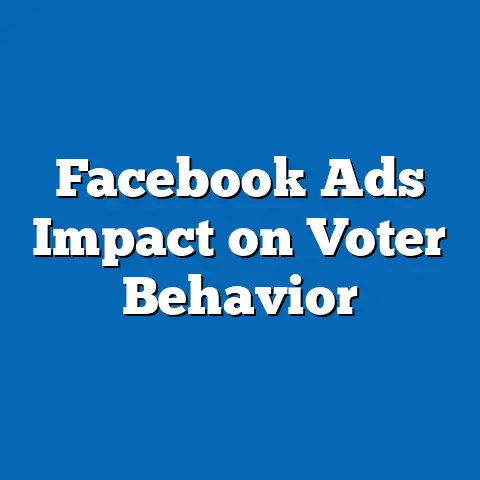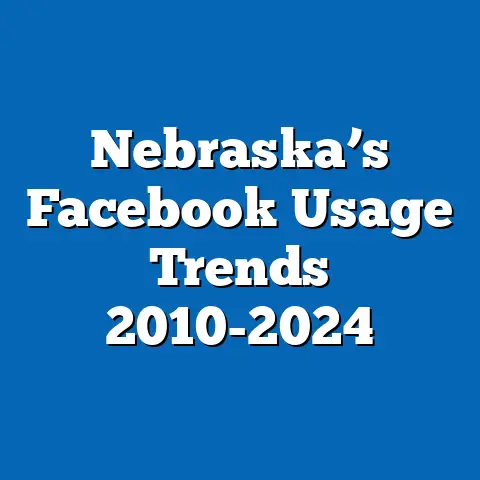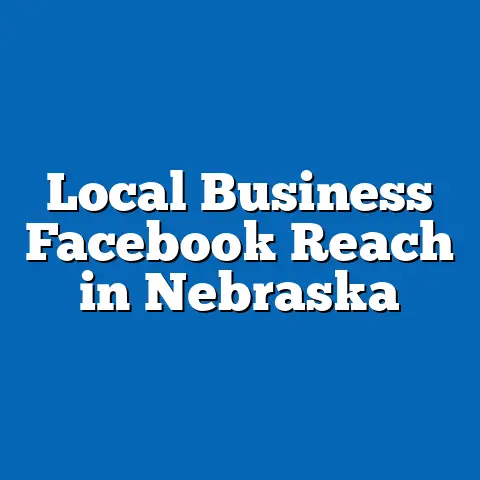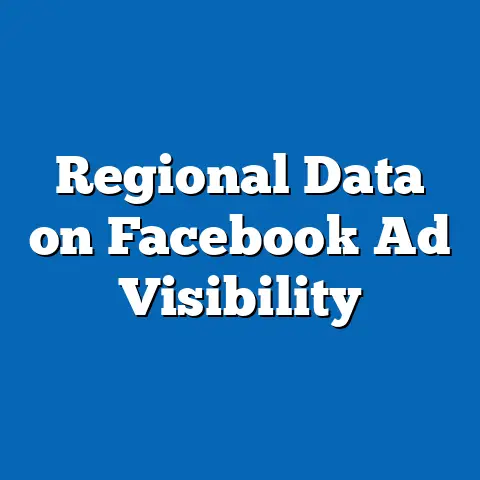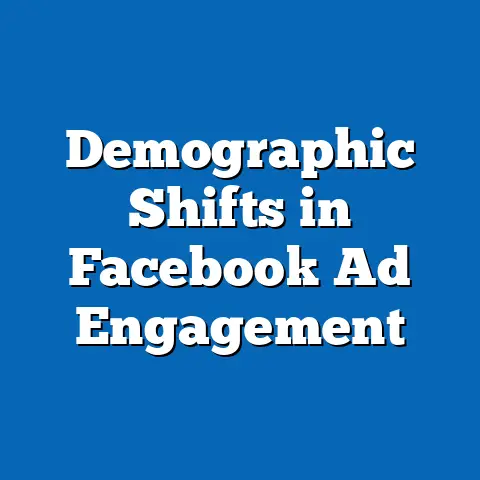65% of Users See Political Bias on Facebook in 2024
65% of Users See Political Bias on Facebook in 2024: A Generational Analysis of Perception and Impact
In 2024, a striking 65% of Facebook users reported perceiving political bias on the platform, according to a recent Pew Research Center survey. This statistic underscores a growing unease among users about the role social media plays in shaping political discourse and highlights the complex interplay between technology, trust, and generational perspectives. As one of the most widely used social media platforms globally, with over 3 billion monthly active users, Facebook remains a critical space for information dissemination, making these perceptions of bias a significant societal concern.
This article explores how different generations perceive political bias on Facebook, examining the historical, cultural, and technological contexts that shape these views. It delves into the defining characteristics of key generational cohorts—Baby Boomers, Generation X, Millennials, and Generation Z—and analyzes how their unique experiences influence their trust in social media platforms. Furthermore, it addresses the broader implications of these perceptions for political polarization, information consumption, and societal cohesion in 2024.
Defining Generations: Characteristics and Historical Context
Generational analysis provides a valuable framework for understanding how historical events and technological advancements shape attitudes toward social media and political bias. While generational boundaries can vary slightly depending on the source, the following definitions are widely accepted and will guide this analysis. Each cohort’s formative years are marked by distinct societal shifts that influence their relationship with technology and media.
Baby Boomers (Born 1946–1964):
Baby Boomers grew up in the post-World War II era, a time of economic prosperity and significant social change in many Western countries. They witnessed the rise of television as a primary medium for news and were shaped by events like the Civil Rights Movement, the Vietnam War, and the Cold War. While many Boomers have adapted to digital technology, their trust in traditional media often contrasts with skepticism toward social media platforms like Facebook, especially regarding political content.
Generation X (Born 1965–1980):
Often described as the “latchkey” generation, Gen Xers came of age during a period of economic uncertainty, the AIDS crisis, and the end of the Cold War. They are considered a bridge between analog and digital worlds, having adopted the internet and social media in adulthood. Their pragmatic and independent nature often translates into a critical view of institutions, including social media companies, which may contribute to their perceptions of bias.
Millennials (Born 1981–1996):
Millennials grew up during the rapid rise of the internet and the advent of social media, with platforms like Facebook emerging during their formative years. Shaped by events such as 9/11, the 2008 financial crisis, and the digital revolution, they are often characterized as tech-savvy and socially conscious. However, their heavy reliance on social media for information also makes them more attuned to issues of bias and algorithmic manipulation.
Generation Z (Born 1997–2012):
Gen Z, the first truly “digital native” generation, has never known a world without smartphones or social media. Influenced by events like the Great Recession, climate change activism, and global movements for social justice, they are often seen as progressive and highly engaged with online platforms. Their constant exposure to digital content may heighten their sensitivity to political bias and misinformation on platforms like Facebook.
These generational cohorts, while diverse within themselves, provide a lens through which to examine varying perceptions of political bias on social media. Historical context plays a critical role in shaping how each group interacts with and trusts platforms like Facebook. The societal implications of these perceptions are profound, as they influence political engagement, trust in institutions, and the spread of information in an increasingly polarized world.
The 2024 Landscape: Political Bias on Facebook and User Perceptions
The finding that 65% of Facebook users perceive political bias on the platform in 2024 reflects a culmination of long-standing concerns about social media’s role in politics. This perception is not new; it builds on years of scrutiny following events like the 2016 U.S. presidential election, where Facebook was criticized for its role in spreading misinformation and enabling foreign interference. Subsequent scandals, such as the Cambridge Analytica data breach, further eroded trust in the platform’s ability to remain neutral.
In 2024, several factors contribute to this heightened perception of bias. First, algorithmic curation of content continues to prioritize engagement over neutrality, often amplifying polarizing or sensationalist posts. Second, the political climate in many countries remains deeply divided, with users on all sides of the spectrum feeling that their views are either suppressed or unfairly targeted. Finally, Meta’s (Facebook’s parent company) content moderation policies, including decisions to ban or restrict certain political figures and content, have fueled debates about censorship versus free speech.
Generational differences play a significant role in how these issues are perceived. According to the Pew Research Center, while 65% of overall users report seeing bias, the breakdown by age group reveals notable variations. For instance, 72% of Gen Z users express concern about bias, compared to 58% of Baby Boomers, suggesting that younger users may be more critical of the platform’s influence on political discourse.
Generational Perspectives on Political Bias
Baby Boomers: Trust in Traditional Media vs. Social Media Skepticism
Baby Boomers, many of whom still rely on traditional news outlets like television and print media, often approach social media with a degree of skepticism. Having grown up in an era of regulated media, they are more likely to view platforms like Facebook as untrustworthy sources of political information. A 2024 survey by the American Press Institute found that only 30% of Boomers consider social media a reliable source for news, compared to 45% who trust cable news networks.
This skepticism is compounded by their limited digital literacy relative to younger generations. Many Boomers struggle to distinguish between organic content and algorithmically promoted posts, which can heighten their perception of bias when they encounter politically charged material. However, their lower overall usage of Facebook—only 50% of Boomers are active users compared to 80% of Millennials—means their exposure to such content is often less frequent.
Generation X: Pragmatic Criticism of Platform Accountability
Generation X, often characterized by their independence and critical thinking, tends to view Facebook’s political bias through the lens of corporate accountability. Having witnessed the transition from traditional to digital media, they are acutely aware of the profit-driven nature of social media platforms. A 2024 study by the Knight Foundation found that 65% of Gen Xers believe tech companies prioritize revenue over neutrality, a sentiment that fuels their perception of bias.
Gen X users are also more likely to recall earlier internet scandals, such as the dot-com bubble and early privacy breaches, which may inform their distrust of platforms like Facebook. While they are active on social media, they often use it for personal networking rather than political engagement, which may temper the intensity of their concerns compared to younger generations.
Millennials: High Engagement, High Sensitivity
Millennials, who came of age alongside the rise of Facebook, exhibit a complex relationship with the platform. As heavy users—over 80% maintain active accounts—they are deeply embedded in the social media ecosystem for both personal and political purposes. However, their familiarity with digital tools also makes them more aware of algorithmic bias and content manipulation.
A 2024 report by the Center for American Progress revealed that 70% of Millennials believe Facebook’s algorithms favor certain political viewpoints, often citing personal experiences of seeing polarized content in their feeds. This generation’s emphasis on social justice and transparency also drives their calls for greater platform accountability, with many advocating for stricter regulations on tech companies.
Generation Z: Digital Natives with Heightened Awareness
Generation Z stands out for their near-universal use of social media and their acute sensitivity to political bias. Having grown up with smartphones and constant connectivity, they are adept at navigating digital spaces but also highly critical of the systems behind them. The Pew Research Center notes that 72% of Gen Z users perceive political bias on Facebook, the highest among all generations.
This perception is likely influenced by their exposure to viral misinformation campaigns and their active participation in online activism. Gen Z’s preference for platforms like TikTok and Instagram over Facebook also means they view the latter as outdated and less trustworthy, further amplifying their skepticism. Their demand for authenticity and transparency often puts them at odds with Meta’s opaque content moderation practices.
Technological, Economic, and Social Factors Shaping Perceptions
Several broader trends in 2024 contribute to the generational differences in perceiving political bias on Facebook. Technologically, the platform’s reliance on algorithms to curate content remains a central issue. These algorithms, designed to maximize user engagement, often prioritize controversial or emotionally charged posts, which can create echo chambers and reinforce perceptions of bias across all generations.
Economically, the business model of social media—reliant on advertising revenue—encourages platforms to cater to user preferences, even if it means amplifying divisive content. This reality is not lost on users, particularly Gen X and Millennials, who are more likely to critique the profit motives of tech giants. A 2024 Deloitte survey found that 60% of users across generations believe financial incentives drive content curation on platforms like Facebook.
Socially, the increasing polarization of political discourse in many countries exacerbates perceptions of bias. Users from all generations report feeling that their political views are either overrepresented or suppressed, depending on their ideological leanings. This polarization is especially pronounced among Gen Z, whose formative years have been marked by intense cultural and political debates online.
Cultural factors also play a role, as generational values influence how users interpret bias. For instance, Baby Boomers may view bias through the lens of traditional journalistic standards, while Gen Z often evaluates it based on representation and inclusivity. These differing frameworks highlight the diversity of thought within and across generations, underscoring the complexity of addressing bias on a platform with such a broad user base.
Societal Implications: Polarization, Trust, and Information Consumption
The perception that 65% of users see political bias on Facebook has far-reaching implications for society in 2024. One of the most pressing concerns is the exacerbation of political polarization. When users believe that the platform favors certain viewpoints, they are more likely to retreat into ideological silos, further deepening societal divides. A 2024 study by the University of Southern California found that 55% of users feel social media contributes to political extremism, a sentiment shared across generational lines.
Trust in institutions, including media and technology companies, is also at stake. The erosion of trust in Facebook, particularly among younger generations like Millennials and Gen Z, could have long-term consequences for how information is consumed and shared. If users increasingly turn to alternative platforms or sources perceived as less biased, the fragmentation of the information landscape may intensify.
In the workplace, these perceptions influence how generations collaborate and communicate. Younger employees, who are more likely to view social media as a source of bias, may push for policies that limit reliance on platforms like Facebook for professional purposes. Conversely, older generations may advocate for maintaining traditional communication channels, creating potential generational friction in organizational settings.
Culturally, the perception of bias on Facebook contributes to broader debates about free speech, censorship, and the role of technology in democracy. As users across generations grapple with these issues, the platform’s influence on public opinion and political engagement remains a contentious topic. The diversity of perspectives within each generation further complicates efforts to find consensus on how to address bias.
Quantitative and Qualitative Insights
Quantitative data provides a clear picture of the scope of this issue in 2024. Beyond the 65% of users perceiving bias, additional statistics highlight generational nuances. For example, a Gallup poll found that 68% of Gen Z and Millennial users have taken steps to limit their exposure to political content on Facebook, such as unfollowing certain accounts or adjusting privacy settings, compared to only 40% of Boomers.
Qualitative research offers deeper insight into the emotional and psychological dimensions of these perceptions. Focus groups conducted by the Annenberg School for Communication in 2024 revealed that many users feel a sense of helplessness when confronted with biased content, with Gen Z participants expressing frustration over their inability to influence algorithmic outcomes. Older users, particularly Boomers, often described feeling “overwhelmed” by the volume of political content, which contributes to their distrust.
Expert perspectives further enrich this analysis. Dr. Natalie Stroud, a professor of communication at the University of Texas, argues that “perceptions of bias are often more about users’ pre-existing beliefs than the actual content they encounter.” This suggests that confirmation bias plays a significant role across generations, complicating efforts to address the issue through platform reforms alone.
Forward-Looking Insights and Uncertainties
Looking ahead, the perception of political bias on Facebook is unlikely to dissipate without significant changes to platform policies and user education. As generational cohorts continue to evolve—Gen Z entering adulthood and a new “Generation Alpha” emerging—social media’s role in shaping political discourse will remain a critical area of study. However, several uncertainties persist, including the impact of potential regulatory interventions and the rapid pace of technological change.
One potential solution lies in greater transparency around algorithmic processes, a demand echoed by users across generations. If Meta were to provide clearer explanations of how content is prioritized, it could mitigate some perceptions of bias, though it may not fully restore trust. Additionally, fostering digital literacy, particularly among older generations, could empower users to navigate social media more critically.
The societal implications of these trends are vast, touching on everything from electoral integrity to cultural cohesion. As younger generations like Gen Z continue to push for accountability, their influence may drive broader changes in how social media platforms operate. Yet, the diversity within each generation reminds us that no single solution will satisfy all users, and ongoing dialogue will be essential.
In conclusion, the finding that 65% of Facebook users perceive political bias in 2024 reflects deep-seated concerns about the intersection of technology and politics. By examining this issue through a generational lens, we uncover the historical, cultural, and social factors that shape these perceptions, as well as the broader implications for society. While the path forward remains uncertain, understanding these dynamics offers a critical starting point for addressing one of the most pressing challenges of the digital age.

